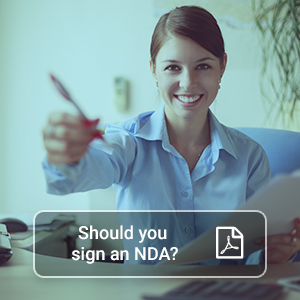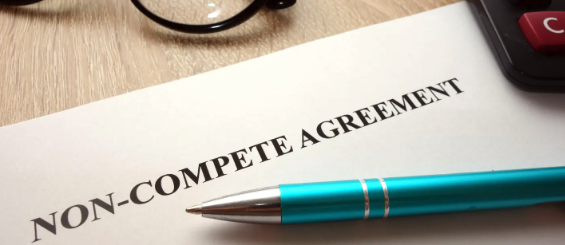Non-disclosure Agreements (NDAs) are ubiquitous in Silicon Valley. They appear (or in many cases should appear) at the beginning of most commercial transactions. Yet, these important contracts are often signed without thoughtful review of terms or the context of the relationship. Here are three questions that you should ask prior to signing an NDA.
NDAs Are Not One Size Fits All
An NDA protects information that one party may want to share with another but wouldn’t want to be made available to the public.
It protects confidential information by detailing what information may not be disclosed or used beyond the terms of the NDA. This limit on disclosure and use can be especially important when it comes to trade secrets or product development prior to seeking a patent where disclosure to the public could invalidate patent rights.
There are generally four forms of NDAs that are used to address various business discussions: (i) NDAs to be used where a company wants to enter discussions with another party but wants to be certain that no confidential information is disclosed; (ii) a unilateral NDA favoring the discloser; (iii) a mutual NDA protecting the confidential information of both parties; and (iv) a unilateral NDA favoring recipient.
This blog post does not analyze the attributes of these forms of NDA. It provides threshold questions that should be considered in light of these forms.
1. Should I sign an NDA Under the Circumstances?
Determining whether an NDA should be signed (and what type of NDA) is a vital precursor to entering commercial discussions. In addition to considering whether you want your information to be kept confidential, be sure to ask yourself whether it’s prudent to agree to keep the other party’s information in confidence.
The results of this decision are significant: Signing an NDA increases the risk of being sued for misappropriation of trade secrets and the recipient will be “tainted” by the confidential information.
Not signing an NDA may be equally problematic. A client of mine wanted to sue a large manufacturing company for stealing one of his inventions. The manufacturing company had just started mass production and distribution of a product that was incredibly like the prototype my client had provided the company about a year earlier when attempting to sign a licensing deal.
He had not yet attempted to patent his invention and, unfortunately, the absence of an NDA was an insurmountable obstacle to his efforts to show that the company had stolen his invention.
2. What Information Should be Treated as Confidential?
Recipients and disclosers of information will want to limit, in the case of recipients, and expand, in the case of disclosers, the scope of the information treated as confidential under the NDA. Scope can be addressed by marking requirements, subject matter specificity and dates of disclosure.
While negotiating an NDA for a development relationship between one of my clients and a company that had recently launched a record-breaking Kickstarter campaign, we discovered that the Kickstarter company was planning on competing with my client at some point soon. How did we find this out? I asked them — after being tipped off by the scope of the NDA.
My client decided to go forward with the relationship but rejected specific NDA language in order to maintain the scope of the confidential information and protections in a potentially competitive landscape.
3. What Can the Confidential Information be Used for?
NDAs create obligations to do or refrain from doing certain things. In addition to nondisclosure, it is important for the disclosing party to prohibit the receiving party from using trade secret information for its internal use or for any business purposes (other than evaluating the proposed transaction).
Without this clause, the recipient may use the information for any purpose so long as it does not disclose the information to third parties. On the other hand, it is important for a recipient of confidential information to maintain its ability to use the information for its intended purpose.
I recently received a call from a CFO who was struggling with an NDA. The CFO wanted to inspect the books and records of a company for which he was a shareholder. The company’s lawyers asked him to sign an NDA.
When he reviewed the NDA he was taken aback to discover a release clause that restricted him from using any information that would be disclosed to him as the basis of a law suit. Signing the NDA would effectively immunize the company against any bad acts evidenced in its books.
Be sure to understand what the NDA requires you to do and what you want to require the other party to do with respect to the information being exchanged.







Thank you so much Quentin for creating my company’s NDAs.